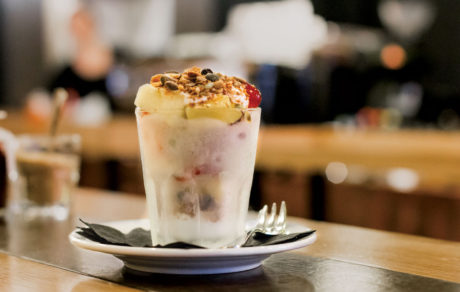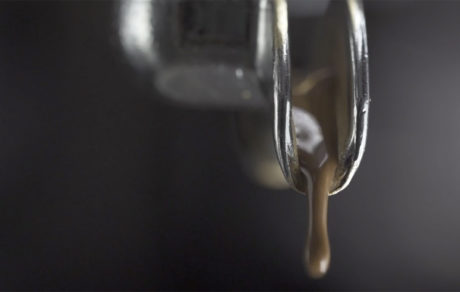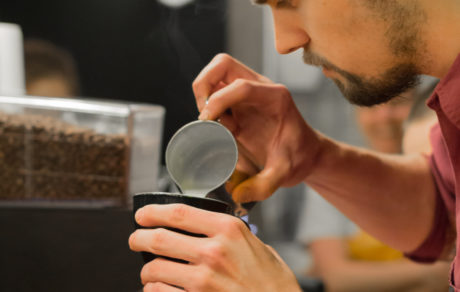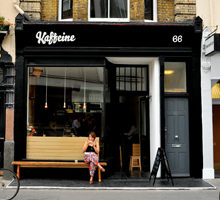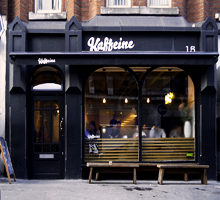Food Safety - The responsibility of not making people really ill (or worse)
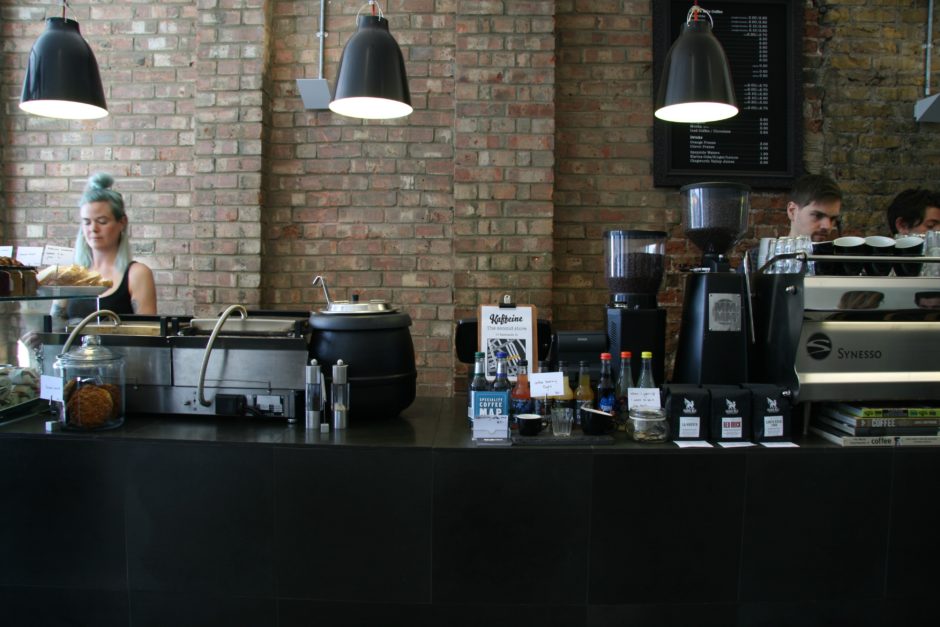
What is one of the most important aspects of operating a food business? To be very blunt, it is most probably making sure you do not make your customers very ill (or worse) with your food. It’s quite a responsibility. It’s also to ensure that for your staff and for your customers you are operating in a clean and hygienic environment. What amazed me when I first opened Kaffeine was that there is no legal requirement for staff to have food safety training, it is merely a ‘recommendation’. Of course it is quite highly recommended, and you will get marked down quickly if none of your staff are trained, but it is not a legal requirement.
On our very first inspection by Westminster in 2009, we did not receive a very good score, as there were a few processes and practices we did not have in place. We worked very hard over the next year, even inviting the Westminster back for a visit and for advice and on our second unplanned visit, moved up to 4 stars.
We were told that every business in Westminster was going to be visited prior to the Olympics, but we were not, and the next visit we received was in July of this year. The man was shall we say, not very detailed, in his approach. It was quite an easy inspection. He certainly did not check everything. So I was a bit let down, not only because we are proud of what we do, but also because we want to make sure we are doing it correctly, that the Food Safety has confidence in us and that they have checked everything we do to ensure the safety of our customers. Basically that they test us thoroughly and competently to ensure we have safe food practice. To do this, council look at and rate you on three areas – food hygiene and safety practices, structure including cleaning and confidence in management.
We got the results and we scored 3 out of 5. So I was not very happy, neither was Chef Jared or manager Claire. Part of council process is that you can request a revisit and appeal against the decision, which is what we did. I wrote a very long email to them, we were re-inspected by a very thorough and professional lady. I felt very comfortable that whatever score we received in review, the inspection was the best we could possibly get. She provided some advice where necessary, asked leading questions to our key staff but not really to me, inspected all our paperwork, invoices, processes and systems.
We work very, very hard to make sure all our food processes are safe and sound. We use the Better Food Better Business diary recommended by council every day. In fact we have one for the kitchen and one for the floor. In this we keep daily records of anything out of the ordinary that may happen, from a blocked drain pipe to food not of quality from the suppliers and being sent back to staff being off ill, to structural problems. It has training records, lists of all our suppliers, recommended methods and systems and practices and ‘what do we do?’ lists. Each new staff member must read through and sign off all the training modules. Each manager, assistant manager and any person who works in the kitchen goes onto the food safety level 2 course at Westminster Council. Both the lead chef and I have completed level 3 supervisory modules as well.
We check and record our fridge temperatures, we check all our deliveries for any problems, we have detailed, listed, and structured daily and weekly cleaning and deep clean tasks that are signed off by the staff members responsible. We have an accident reporting book and complete first aid kit, we have a professional pest control program, professional laundry for our cloths, colour coded chopping boards and colour coded cloths for cleaning. We have a professional refrigeration maintenance company, we only use reputable, traceable suppliers who are also professionals in their trades.
We have hand wash basins with soap, hot water and towels, we have a separate, enclosed rubbish storage area, tea towels for drying dishes and cloths for ovens, aprons for the chefs and aprons for the staff. Our food is all labelled in the fridges, covered and dated and rotated FIFO, our fridge seals are changed when they wear out, we use professional dishwash machines and have dish detergent and rinse aid for the machines. The machines are deep cleaned very week. We have blocked each and every tiny little hole that we can find where rodents may enter (the width of a pen) and we search for (and block) new holes continuously.
We sanitise our work benches regularly, use throw away cloths and go though loads of paper towels, sweep the floors all the time and mop after each service, we have colour coded mops for different areas (kitchen, floor, toilets), have a bins with lids.
We got an envelope a few weeks ago in the post from Westminster. We gently, carefully opened it and inside was a certificate. Five out of five.
Peter Dore-Smith
Director
Kaffeine Ltd
66 Great Titchfield st.
15 Eastcastle st.
